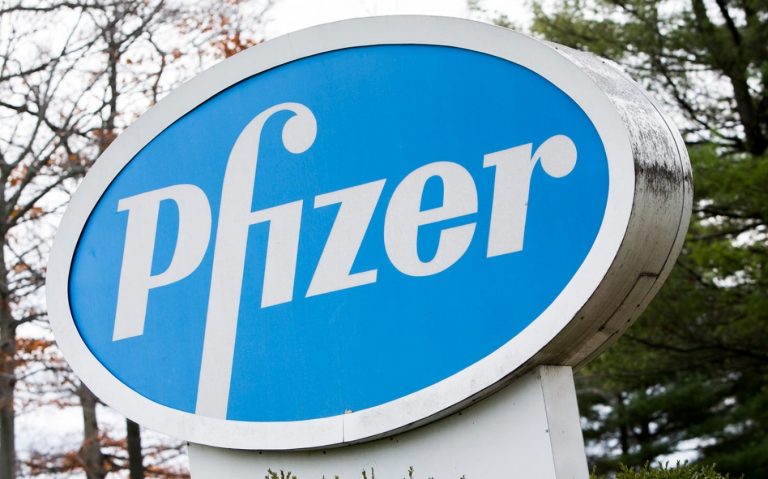
Pfizer Inc. (NYSE:PFE) Lorlatinib’s Phase II clinical trial results have been released and they indicate that the ALK inhibitor was able to trigger responses in some of the heavily pretreated patients who were suffering from advanced NSCLC – non-small cell lung cancer. This is a suggestion that the inhibitor has a role to play in treating the disease.
“The findings presented today suggest that lorlatinib, if approved, may represent an effective treatment option for patients with ALK-positive advanced non-small cell lung cancer across multiple lines of therapy,” said the lead investigator in the trial, Professor Benjamin Solomon.
Brain metastases
Participants numbering 275 who were ROS1 or ALK-positive were enrolled in the trial regardless of whether they had treated or untreated brain metastases. Prior to joining the study the patients had undergone treatment. In the trial the dosage of lorlatinib that the participants received was 100mg per day.
Among ALK-positive patients numbering 111 who had previously undergone treatment involving chemotherapy or two or more ALK inhibitors, the objective response rate that lorlatinib managed to achieve was 39%. In the group of 83 patients who were suffering from brain metastases, the intracranial objective response rate was 48%.
Objective response rate
The objective response rates in patients who had been previously heavily pretreated has increased hopes that lorlatinib might emerge as a viable option for patients whose disease progresses after treatment with ALK inhibitors that already exist such as Xalkori which was developed by Pfizer as well.
The effectiveness of lorlatinib was observed in participants who had been put on Xalkori, combined with chemotherapy as well as without chemotherapy. In this group the objective response rate was 69% while the intracranial objective response rate was 68%. The objective response rates in these patients was much higher than in those participants who had been put on other ALK inhibitors as the objective response rate in that group was 33% and the intracranial objective response rate was 42%. Other inhibitors that are in the market include Takeda’s Alunbrig, Roche’s Alecensa and Novartis AG (ADR)(NYSE:NVS)’ Zykadia.
In Monday’s trading session shares of Pfizer Inc fell by 0.99% to close the day at $35.98 per share.




